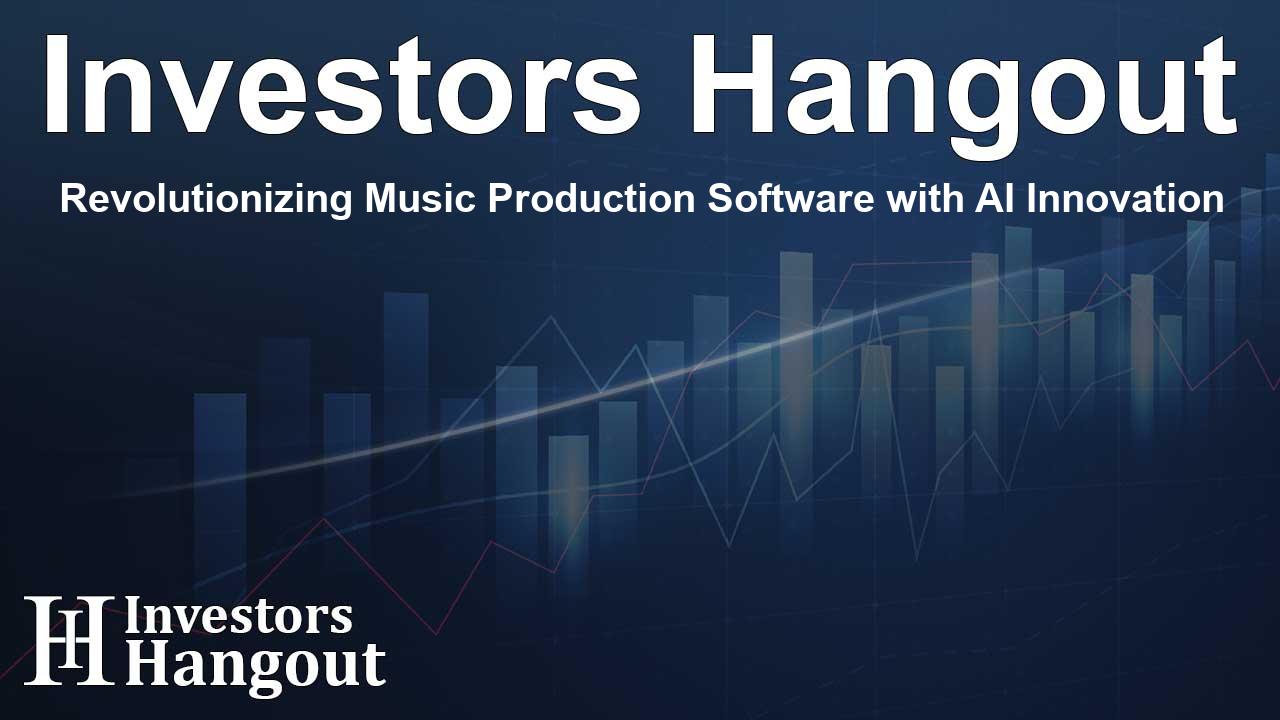Revolutionizing Music Production Software with AI Innovation

Transformative Trends in Music Production Software
The global market for music production software is witnessing remarkable growth, projected to expand by USD 432.8 million from 2025 to 2029. This significant increase highlights the rising engagement of musicians and artists in creating music and utilizing advanced technological solutions. Recent reports indicate a strong compound annual growth rate (CAGR) of approximately 7.7% throughout the forecast period, mainly fueled by the increasing adoption of artificial intelligence (AI) in music production.
The Role of AI in Music Production
As technology evolves, AI serves as a crucial driving force in reshaping how music is produced. Musicians and composers are now leveraging AI-powered tools to enhance their creative processes, leading to unprecedented transformations in the industry. AI technologies provide valuable assistance in refining human-generated music through superior editing and mastering capabilities.
AI Tools Empowering Musicians
AI-based music composition tools such as Orb Composer 1.5 are gaining popularity among music producers. These applications utilize machine learning algorithms to automate the production process, mimicking cognitive skills and enabling the discovery of new music production patterns. This technological integration is helping music software companies innovate their products, focusing on enhanced functionality for creators.
Market Dynamics and Challenges
The music production software market is experiencing a paradigm shift, with various challenges emerging alongside growth opportunities. One notable challenge is the prevalence of open-source software, which provides users with accessible tools free of cost, presenting competition to proprietary developers. Popular open-source options like Audacity and LMMS have become favored choices among music producers, further complicating vendor dynamics.
Adapting to New Trends
Social media platforms play a pivotal role in transforming music discovery and promotion. To keep pace, music production tools must effectively adapt to trends such as AI-pushed music production, collaboration features, and cloud-based solutions. The rise of collaborative tools and cloud technology has made music production more democratized than ever, particularly for younger generations embracing electronic dance music (EDM) and other genres from the comfort of their home studios.
Segmentation and Target Audience
The market's vast landscape is segmented across various dimensions, including end-users who are either professionals or non-professionals. Each of these segments possesses unique requirements and preferences, drawing software developers' attention toward customizing solutions accordingly.
Meeting Professional Needs
Professionals in the music production arena, encompassing musicians, DJs, and companies, increasingly demand high-quality tools for efficient editing, mixing, and mastering. Significant investment in advanced music production software is necessary to cater to the surging demand from industries such as film and video production, where high-quality audio is paramount.
The Future of Music Production Software
The accessibility and usability of music production software continue to improve thanks to technological advancements. Many programs are introducing flexible pricing models, such as freemium and subscription options, enabling users at different creative levels to explore their potential without substantial upfront costs. As the market landscape evolves, it is imperative for software providers to remain agile and innovative to satisfy the dynamic demands of music producers.
Conclusion: A New Era of Music Creation
The music production software sector is in the midst of a profound transformation, driven primarily by advances in AI and cloud technology. These innovations are paving the way for unprecedented creativity and collaboration among artists, redefining music creation as we know it. Looking forward, the ability to harness these technologies will be key for both emerging and established musicians to thrive in an increasingly competitive landscape.
Frequently Asked Questions
What is driving the growth of the music production software market?
The market is primarily driven by the rising number of musicians and artists, along with the integration of AI technology into music production tools.
How will AI impact music production?
AI is transforming music production by automating processes, enhancing music composition, and streamlining editing and mastering tasks.
What challenges does the music production software market face?
The market faces challenges from open-source software options, as well as the need to adapt to changing social media dynamics and user preferences.
Who are the key players in the music production software industry?
Key players include Ableton AG, Apple Inc., Avid Technology Inc., and Yamaha Corp., among others.
What trends are shaping the future of music production software?
Trends such as cloud-based solutions, social media integration, and subscription-based pricing models are significantly shaping the industry's future.
About The Author
Contact Logan Wright privately here. Or send an email with ATTN: Logan Wright as the subject to contact@investorshangout.com.
About Investors Hangout
Investors Hangout is a leading online stock forum for financial discussion and learning, offering a wide range of free tools and resources. It draws in traders of all levels, who exchange market knowledge, investigate trading tactics, and keep an eye on industry developments in real time. Featuring financial articles, stock message boards, quotes, charts, company profiles, and live news updates. Through cooperative learning and a wealth of informational resources, it helps users from novices creating their first portfolios to experts honing their techniques. Join Investors Hangout today: https://investorshangout.com/
The content of this article is based on factual, publicly available information and does not represent legal, financial, or investment advice. Investors Hangout does not offer financial advice, and the author is not a licensed financial advisor. Consult a qualified advisor before making any financial or investment decisions based on this article. This article should not be considered advice to purchase, sell, or hold any securities or other investments. If any of the material provided here is inaccurate, please contact us for corrections.
